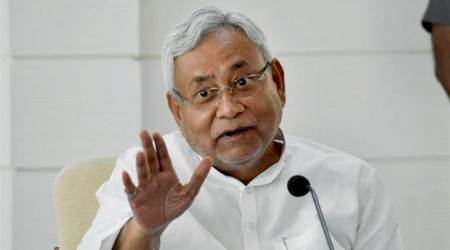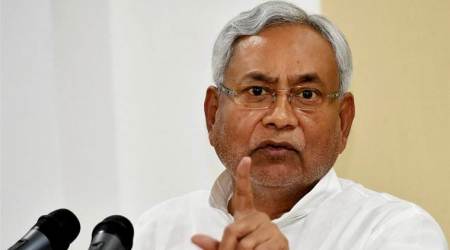 Bihar Chief Minister Nitish Kumar (PTI Photo)
Bihar Chief Minister Nitish Kumar (PTI Photo)
The Supreme Court on Monday agreed to hear after four weeks a petition seeking cancellation of Bihar Chief Minister Nitish Kumar’s membership of the state Legislative Council on the basis that the JD(U) leader allegedly concealed information regarding a pending criminal case against him. The Chief Justice Dipak Misra-headed bench asked lawyer M L Sharma, who has filed the PIL in his personal capacity, to submit a copy of his amended plea before the Election Commission of India. For now, it has decided not to issue notice on it.
The petition has alleged that there was a criminal case against Kumar in which he was accused of killing a local Congress leader Sitaram Singh and injuring four others before the Lok Sabha by-election from Bihar’s Barh constituency in 1991. It also sought a direction to the CBI to register an FIR against Kumar in the case.
“Respondent number 2 (poll panel), despite knowing facts about his (Kumar’s) criminal case, did not cancel his membership of the House and respondent (Kumar) still enjoys constitutional office till date,” the plea alleged.
Citing the EC’s 2002 order which states that it was mandatory for candidates to disclose criminal cases against them in their affidavits annexed to the nomination papers, the petitioner has sought cancellation of Kumar’s membership. He also claimed that the Bihar CM did not disclose the criminal case pending against him in affidavits since 2004, except for 2012.
With PTI inputs

